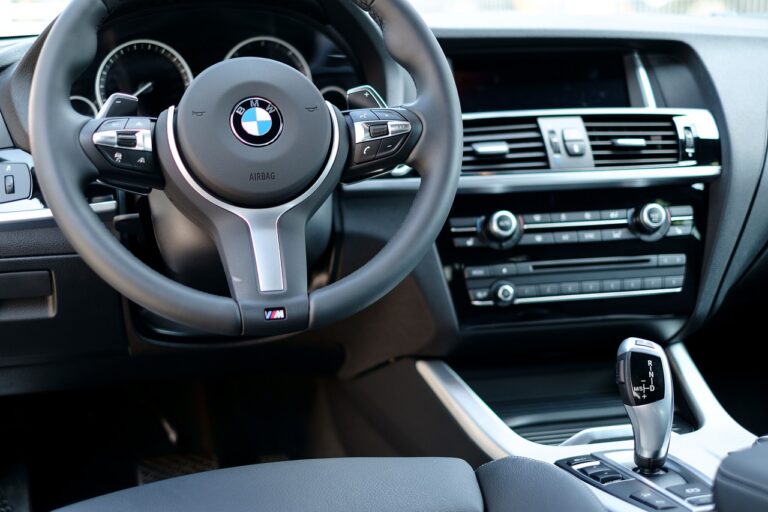The Impact of AI on Vehicle Design: 11xplay sign up login password, Laser247 com, Tiger exchange login
11xplay sign up login password, laser247 com, tiger exchange login: Artificial intelligence (AI) is revolutionizing every industry it touches, and vehicle design is no exception. From improving safety features to streamlining manufacturing processes, AI is playing a significant role in shaping the future of the automotive industry. In this article, we will explore the impact of AI on vehicle design and how it is changing the way cars are built and used.
Understanding the Role of AI in Vehicle Design
AI is a branch of computer science that focuses on the development of intelligent machines that can perform tasks that typically require human intelligence. In the context of vehicle design, AI algorithms are used to analyze data, identify patterns, and make decisions to improve various aspects of a vehicle’s design and functionality.
AI is utilized in various stages of vehicle design, including concept development, engineering, manufacturing, and testing. For example, AI can analyze customer feedback and market trends to help designers create vehicles that meet consumer preferences. AI can also help engineers optimize vehicle performance by simulating different design configurations and selecting the most efficient one based on performance data.
Furthermore, AI is used in manufacturing processes to improve efficiency and quality control. AI-powered robots can perform complex tasks, such as welding and painting, with a high degree of precision and consistency. This results in faster production times and lower defect rates, ultimately leading to cost savings for manufacturers.
The Impact of AI on Vehicle Safety
One of the most significant benefits of AI in vehicle design is the improvement of safety features. AI-powered systems, such as lane departure warning, automatic emergency braking, and adaptive cruise control, can help prevent accidents and reduce the severity of collisions.
These systems use sensors and cameras to monitor the vehicle’s surroundings and detect potential hazards. When a dangerous situation is identified, the AI system can take corrective action, such as applying the brakes or steering the vehicle back into the lane, to avoid or mitigate the impact of a collision.
AI has also enabled the development of self-driving vehicles, which have the potential to revolutionize the way we travel. These autonomous vehicles use AI algorithms to navigate roads, make decisions, and interact with other vehicles and pedestrians. While there are still some challenges to overcome before self-driving cars become mainstream, the advancements in AI technology have brought us closer to a future where accidents caused by human error are a thing of the past.
Improving Vehicle Efficiency with AI
In addition to safety features, AI is also being used to improve the efficiency of vehicles. AI algorithms can optimize engine performance, reduce fuel consumption, and enhance aerodynamics to make vehicles more environmentally friendly and cost-effective to operate.
For example, vehicle manufacturers are using AI to develop electric and hybrid vehicles that have longer battery life and faster charging times. AI can also be used to optimize the design of components, such as tires and body panels, to reduce weight and improve fuel efficiency without compromising safety or performance.
Furthermore, AI-powered predictive maintenance systems can help vehicle owners identify potential issues before they become major problems, reducing downtime and maintenance costs. By analyzing data from sensors and onboard diagnostics, these systems can provide real-time recommendations for maintenance tasks and repairs, ultimately extending the lifespan of the vehicle and improving overall reliability.
FAQs
Q: How is AI used in vehicle design?
A: AI is used in various stages of vehicle design, including concept development, engineering, manufacturing, and testing. It is used to analyze data, identify patterns, and make decisions to improve various aspects of a vehicle’s design and functionality.
Q: What impact does AI have on vehicle safety?
A: AI has a significant impact on vehicle safety by improving safety features, such as lane departure warning, automatic emergency braking, and adaptive cruise control. These systems help prevent accidents and reduce the severity of collisions by monitoring the vehicle’s surroundings and taking corrective action when necessary.
Q: How does AI improve vehicle efficiency?
A: AI improves vehicle efficiency by optimizing engine performance, reducing fuel consumption, and enhancing aerodynamics. AI algorithms can also be used to develop electric and hybrid vehicles with longer battery life and faster charging times, as well as predictive maintenance systems that help identify potential issues before they become major problems.
In conclusion, AI is reshaping the automotive industry by revolutionizing vehicle design and functionality. From improving safety features to enhancing efficiency, AI has the potential to transform the way we think about transportation. As technology continues to advance, we can expect to see even more innovations in vehicle design that will make our roads safer, more sustainable, and more enjoyable to travel on.







